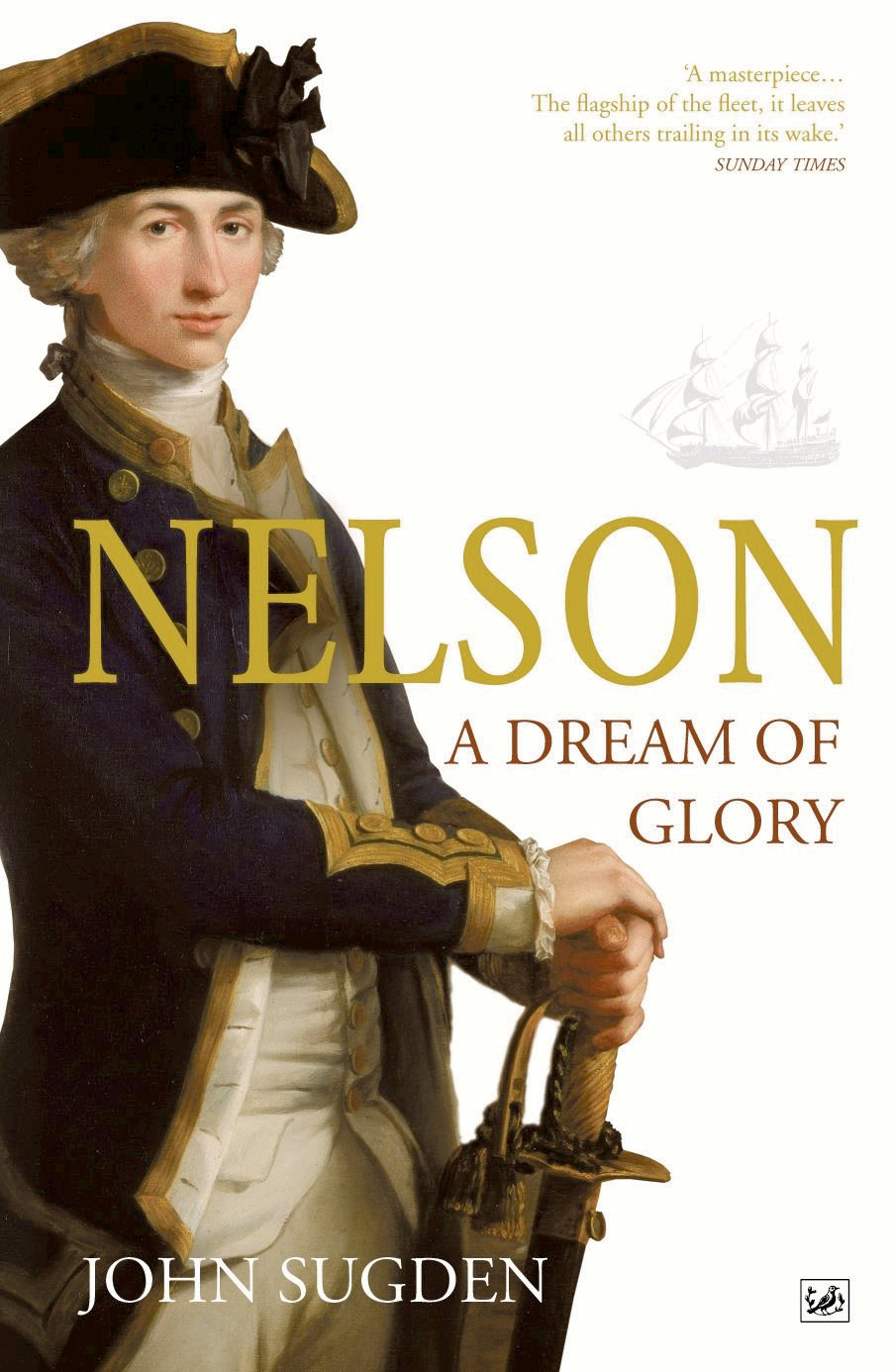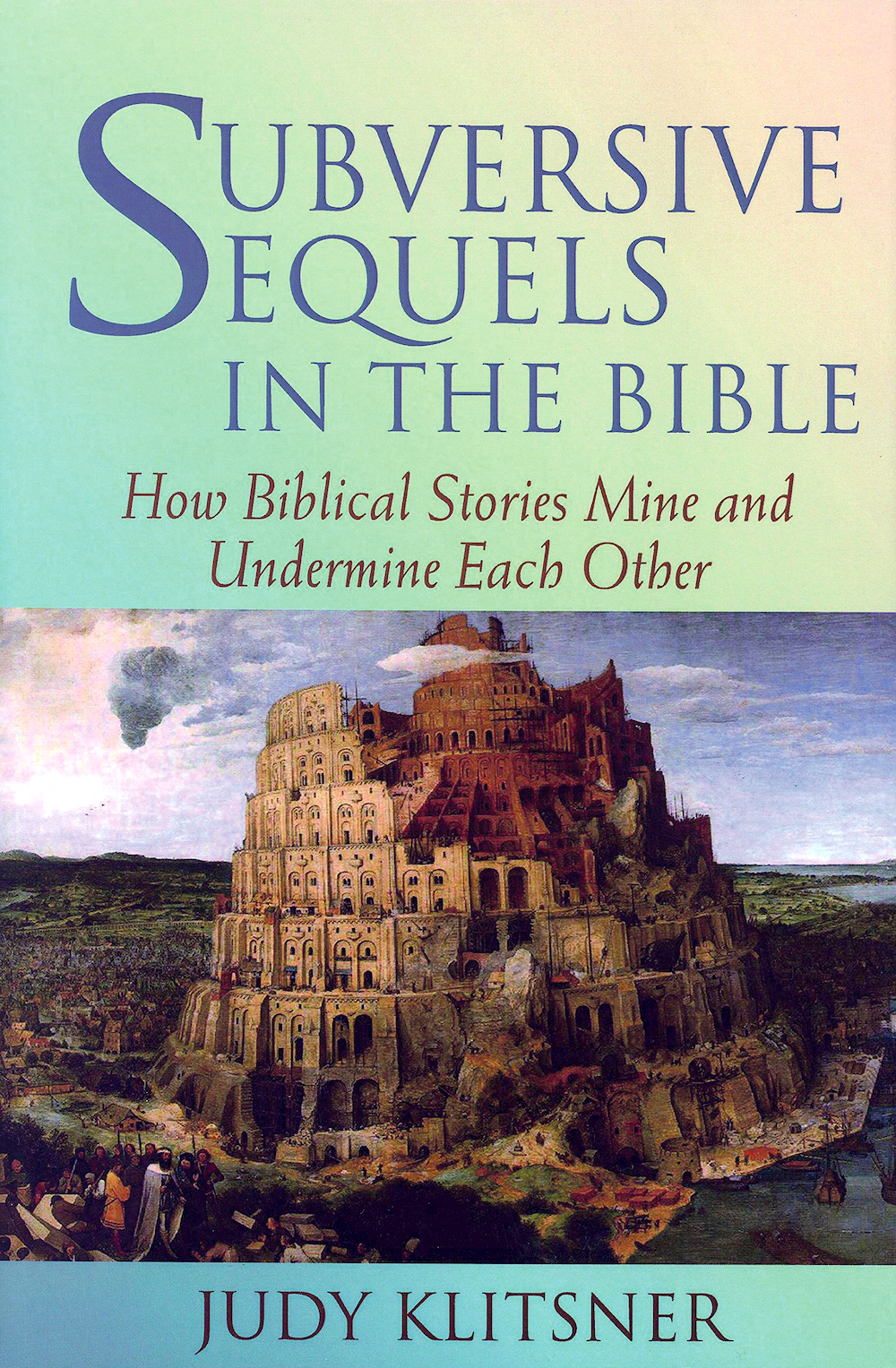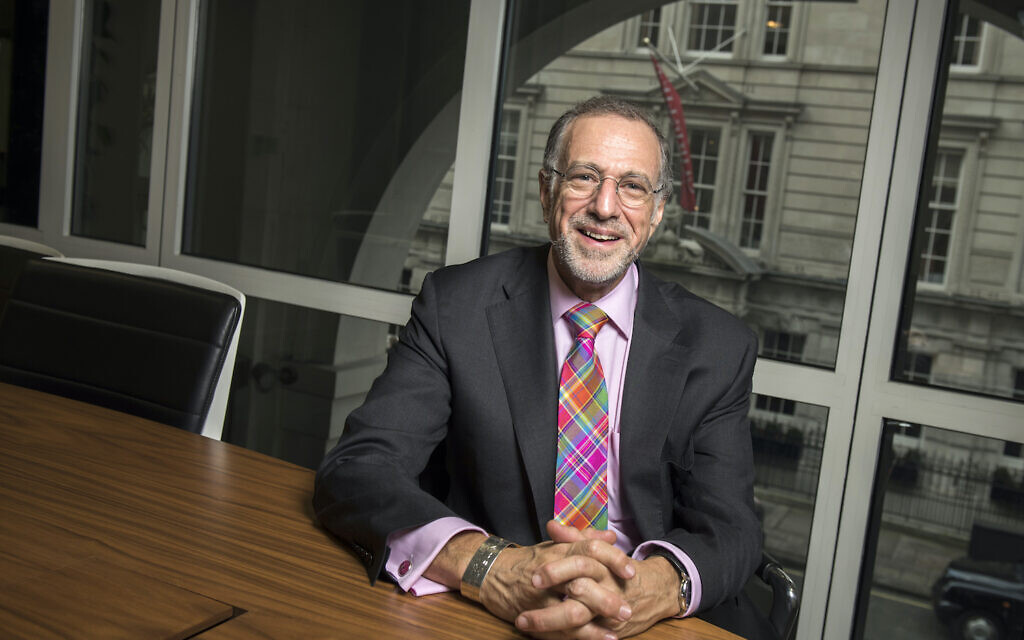Sir Mick Davis: From Horatio Nelson to Nelson Mandela
Zaki Cooper indulges in a spot of tome improvement with acclaimed businessman and community leader Sir Mick Davis, discovering the books that inspire him.
Mick Davis grew up in South Africa and pursued a career in the mining industry, becoming CEO of Xstrata from 2001 to 2013. Before that he was an executive director and chief financial officer of Billiton. In the UK, he was president of the Jewish Leadership Council 2009-17 and is actively involved with a number of Jewish and non-Jewish charities. He also worked closely with Theresa May, serving as CEO of the Conservative Party from 2017 to 2019.
You were in South Africa for the breakdown of apartheid. What are your memories of that era?
It was a surreal experience. You had a minority determining the life of the majority. If you think back now, it was an affront to humanity. The remarkable thing was that F W De Klerk and Nelson Mandela emerged to take hold of a new South Africa. Both rightfully got the Nobel Prize for Peace, and created a nation with much potential. Sadly today we don’t see that potential being realised.
Get The Jewish News Daily Edition by email and never miss our top stories Free Sign Up
Your first book is Indaba, My Children by Vusamazulu Credo Mutwa. Why did you select that book?
I read it when I was in my late teens. Indaba means ‘gather round’. This book demonstrates the richness in the tapestry of the lives and traditions of black people in Africa. At school in South Africa, our history was defined on a very Euro-centric basis. Black people were simply the other who were essentially a contrast to what we were doing. We never got to appreciate the depths of the history, their religion, their philosophy, their life stories, the mythology that informed how their societies developed.
When I came across this book as a teenager it really opened my eyes to the fact here was a society and history which was as relevant and authentic to the development of humankind as any other.
Listen to clip one here:
You came to the UK in the late ‘90s and became CEO of Xstrata in 2001. Tell us about that
The defining aspect of Xstrata was identifying discontinuity in the market and appreciating that the industrialisation of China and the move of people from an agrarian society into an urban environment would radically change the demand profile for commodities.
We then attempted to acquire companies and resources which could meet that demand. The most defining transactions we did were the acquisition of Mount Isa Mines in Australia and Falconbridge in Canada. We converted this very, very small company into one of the world’s great diversified mining companies.

You have selected a biography of Nelson by Dr John Sugden. Why?
Although Nelson had high regard for tradition he nevertheless was prepared to act in ways which didn’t follow the herd.
At times his interventions could be completely out of sync with accepted naval tactics. Nelson wasn’t a disrupter but he recognised that at times you need to do things radically differently and that’s the measure of leadership, especially in a complex environment.
Does business have a social responsibility?
If you’re going to be effective in a business, you need the social licence to operate. This goes far beyond meeting your regulatory and legal requirements. The communities you operate in have to see you as a force for good because if they don’t, they will disrupt your operations and capacity to provide a return to investors.
Listen to clip two here:
You talk about a social licence and your next book is The Social Contract by Robert Ardrey. Tell us why you like that book
It’s the final book in a trilogy that tries to understand the nature and development of man. This book addresses the issue of what drives man to be creative. It talks about a very egocentric and aggressive ‘animal’ but postulates that it is this aggressive tendency that allows man to be creative, to create value.
The question posed is how do you move from the rights and desires of the individual to the need of the collective? It is the essential challenge of humanity, and Ardrey suggests that it is a noble obligation of man to seek to move beyond the self to the collective. And that fits well with my understanding of the normative values of Judaism.
As a business leader, how did you adapt to the political world?
Very badly. It operates in a different way. It’s very ‘I’ focused, it lacks long-term strategic thinking, so it was a challenge. But at that point in time we were facing an existential threat in the UK, with a weakened Conservative Party. I saw it almost as a duty to help rebuild its campaign capability as this was fundamental to ensuring Jeremy Corbyn did not become PM. I am pleased that this renewed campaign capacity played a significant part in the 2019 election victory.
Tell me what is special about your next book, Team of Rivals by Dorothy Kearns Goodwin
The lesson in there is that you don’t have to like the people you work with. You have to recognise their ability to contribute.
Life is not about choosing people who think the same as you, who like you or indeed are like you. It’s about choosing the best people and how you can interact with them and work constructively so that the whole is better than the sum of the parts.
This book describes the unique ability of Lincoln to identify that and implement that.
You were president of the JLC for eight years. What was that like?

Ours is a complex community, which can recognise issues that need attention but which at times holds those who serve it to a standard that is almost impossible to attain.
A community which rightly criticises wrongdoing and ineptitude in its leaders but could do better in acknowledging commitment and contribution.
Nevertheless, I worked with some incredibly talented people. It was a very fulfilling time and I was privileged to be able to do it.
You have chosen Subversive Sequels in the Bible by Judy Klitsner. Why?
It demonstrates the complexity of the Tanach. I find many of the traditional commentators to be formulaic and at times simplistic and while this is hardly the definitive word on interpretation of Tanach it gets one thinking.
You are a qualified cricket umpire
I’ve always loved cricket. I was never quite good enough to play at the highest levels but I was a good umpire.
If you want to appreciate the best cricket, there is nothing like doing that when you are 22 yards away from the batsman.
Sir Mick’s top five page turners
• Indaba My Children by Vusamazulu Credo Mutwa
• Nelson by Dr John Sugden
• Team of Rivals by Dorothy Kearns Goodwin
• The Social Contract by Robert Ardrey
• Subversive Sequels in the Bible by Judy Klitsner
Listen to the full podcast here:

Thank you for helping to make Jewish News the leading source of news and opinion for the UK Jewish community. Today we're asking for your invaluable help to continue putting our community first in everything we do.
For as little as £5 a month you can help sustain the vital work we do in celebrating and standing up for Jewish life in Britain.
Jewish News holds our community together and keeps us connected. Like a synagogue, it’s where people turn to feel part of something bigger. It also proudly shows the rest of Britain the vibrancy and rich culture of modern Jewish life.
You can make a quick and easy one-off or monthly contribution of £5, £10, £20 or any other sum you’re comfortable with.
100% of your donation will help us continue celebrating our community, in all its dynamic diversity...
Engaging
Being a community platform means so much more than producing a newspaper and website. One of our proudest roles is media partnering with our invaluable charities to amplify the outstanding work they do to help us all.
Celebrating
There’s no shortage of oys in the world but Jewish News takes every opportunity to celebrate the joys too, through projects like Night of Heroes, 40 Under 40 and other compelling countdowns that make the community kvell with pride.
Pioneering
In the first collaboration between media outlets from different faiths, Jewish News worked with British Muslim TV and Church Times to produce a list of young activists leading the way on interfaith understanding.
Campaigning
Royal Mail issued a stamp honouring Holocaust hero Sir Nicholas Winton after a Jewish News campaign attracted more than 100,000 backers. Jewish Newsalso produces special editions of the paper highlighting pressing issues including mental health and Holocaust remembrance.
Easy access
In an age when news is readily accessible, Jewish News provides high-quality content free online and offline, removing any financial barriers to connecting people.
Voice of our community to wider society
The Jewish News team regularly appears on TV, radio and on the pages of the national press to comment on stories about the Jewish community. Easy access to the paper on the streets of London also means Jewish News provides an invaluable window into the community for the country at large.
We hope you agree all this is worth preserving.
-
By Brigit Grant
-
By Laurent Vaughan - Senior Associate (Bishop & Sewell Solicitors)
-
By Laurent Vaughan - Senior Associate (Bishop & Sewell Solicitors)
-
By Laurent Vaughan - Senior Associate (Bishop & Sewell Solicitors)
-
By Laurent Vaughan - Senior Associate (Bishop & Sewell Solicitors)






















